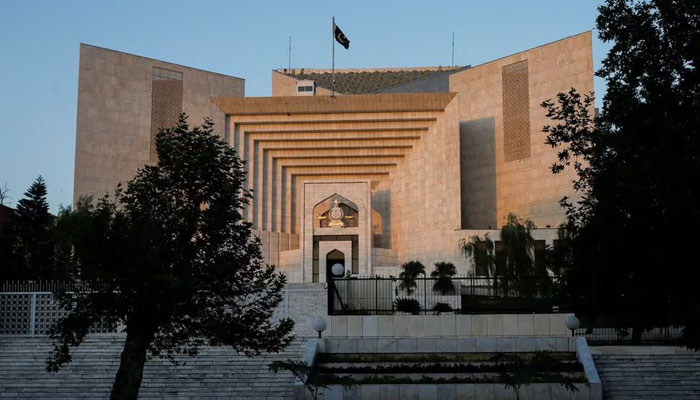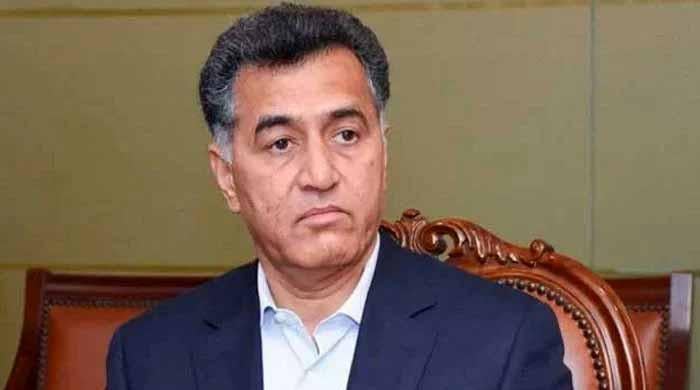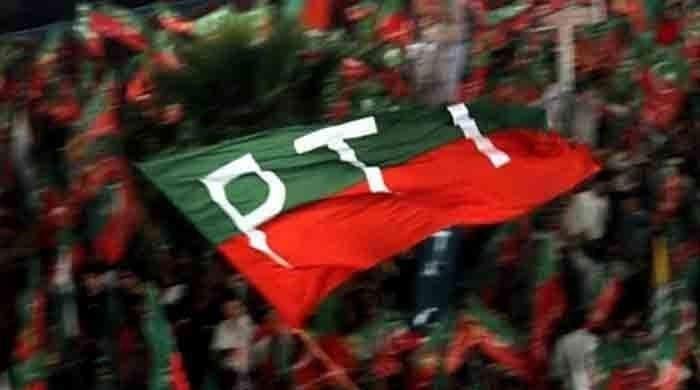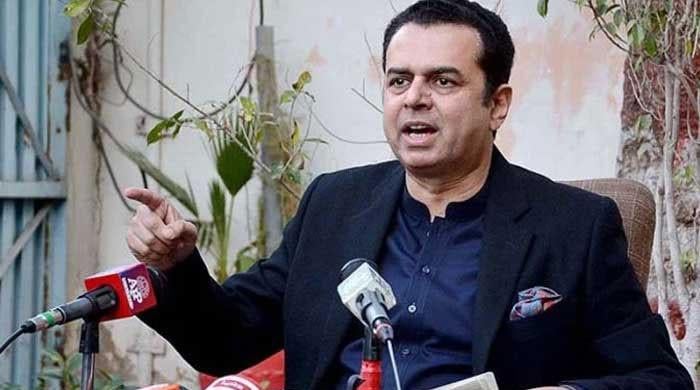SC to take up lifetime disqualification issue in Jan 2024
Matter surfaced during hearing of plea filed by PML-N politician challenging his lifetime disqualification
December 11, 2023

- Election Act's Section 232, SC verdict "can't go hand in hand": court.
- AG calls for larger bench for "constitutional interpretation".
- Section 232 "beyond SC court's decision on Art 62: attorney general.
ISLAMABAD: The Supreme Court Monday decided to take up the issue of lifetime disqualification of lawmakers in January 2024 and referred the matter for further consideration to the judges' committee.
The apex court took notice of contradictions regarding the duration of disqualification in the Election Act, 2017 and a Supreme Court verdict during the hearing of a petition filed by former Pakistan Muslim League-Nawaz (PML-N) provincial lawmaker Sardar Meer Badshah Khan Qaisrani.
While issuing notices to the attorney general and provincial law officers, the apex court also ordered the notice of the case to be published in the country's two major English newspapers.
A two-member bench comprising Chief Justice Qazi Faez Isa and Justice Athar Minallah heard the case.
Qaisrani had challenged his lifetime disqualification over a fake degree in 2007.
Meanwhile, the SC has said that the present case will not be used as a tool to delay elections.
During the hearing, the Panama case related to lifelong disqualification and amendments to the Election Act also came under discussion.
The top court said that three appeals pertaining to the disqualification, of national and provincial assemblies have been filed in the court in relation to the 2008 and 2018 general elections.
It noted that the petitioner was disqualified for life and was handed a two-year jail sentence over holding a fake degree — his appeal against lifetime disqualification is pending in the Lahore High Court (LHC).
"What is the federal government's take on lifetime disqualification?" Chief Justice Qazi Faiz Isa asked the attorney general to which the latter responded: "The federal [government's] opinion is that Section 232 is beyond the court's verdict."
Justice Athar Minallah said that the present case is related to the 2018 elections. "How is this a live issue now that the new elections are on the horizon?" he remarked.
The judge added that the current elections will be affected by this case.
The petitioner's lawyer Saqib Jilani said that the current case will have an impact on the upcoming elections as well.
Chief Justice Isa asked the lawyer why Qaisrani was disqualified.
"Meer Badshah Khan Qaisrani was disqualified in 2007 based on a fake degree. But the high court allowed him to contest the 2018 elections," the counsel replied.
Qaisrani's counsel said his client, in the 2018 general elections, submitted nomination papers based on matriculation; but the high court allowed him to contest the elections.
The PML-N politician, the lawyer said, was disqualified under Article 62(1)(f) and could not contest the elections.
"If the Supreme Court does not decide, he will contest the next elections despite his disqualification," the lawyer said.
The counsel told the court that an appeal against Qaisrani's sentence is pending in the high court. "The Supreme Court should order the high court to decide on the appeal."
CJP Isa told the lawyer that the SC could not order the high court. "We are not sitting as monitoring judges on the high court. We will decide on the constitutional issue and not on the appeal pending in the high court."
The chief justice remarked that the Constitution doesn't mention anything regarding the period of disqualification under Article 62(1) (f).
CJP Isa said the Supreme Court has two opinions on lifelong disqualification. He further asked if there was a severe penalty like lifetime disqualification in cases related to the National Accountability Bureau (NAB), then how long would it be in case of a murder.
"Is there a new law on lifetime disqualification and Article 62(1) (f)?" CJP Isa asked.
The petitioner's lawyer said the Election Act was recently amended to increase the maximum period of disqualification to five years.
By amending the Election Act, Parliament can nullify the Supreme Court's decision, said Justice Minallah. "By adding Section 232 to the Election Act, Supreme Court's decision on Article 62(1) (f) has become ineffective."
CJP Isa remarked that the SC's lifetime disqualification decision and the Election Act cannot go together. He added that either the amendments in the Election Act or the apex court's verdict would have to be upheld.
He remarked if the duration of disqualification for a crime like high treason is five years, then why is there lifetime disqualification for those who don't pray or tell lies.
"After the Supreme Court Practice and Procedure Act is made, a bench of at least five judges should be formed on this constitutional interpretation," CJP Isa said.
The chief justice said that no one has challenged the amendments to the Election Act. "When the amendments to the Election Act are not challenged, the other party will rely on it."
By adding Article 232 to the Election Act, the concept of lifelong disqualification has been eliminated, he said, adding that the "elections are upon us".
He added that the returning officer, election tribunal and the courts will be in a quandary whether to rely on the Election Act or the SC judgement.
"The Election Act will apply to the current elections. After the inclusion of Section 232, all judgments related to lifelong disqualification became invalid," Justice Minallah said.
Stressing that it will only address the question pertaining to lifetime disqualification, the court highlighted that according to the petitioner's lawyer, Qaisrani's disqualification is for life whereas Section 232 of the Election Act provisions for five-year disqualification.
At this, the attorney general contended that the aforesaid section of the Election Act is to be "beyond the SC verdict regarding lifetime disqualification".
During the hearing, the attorney general maintained that the said issue pertains to constitutional interpretation and therefore must be addressed by a larger bench.
At this, the court forwarded the matter to the judges' committee regarding the forming of the bench on the issue of lifetime disqualification.









